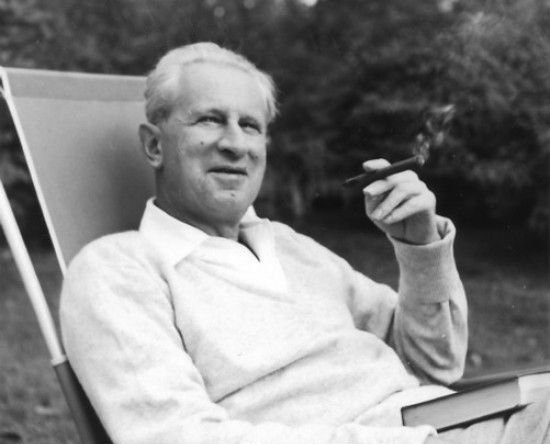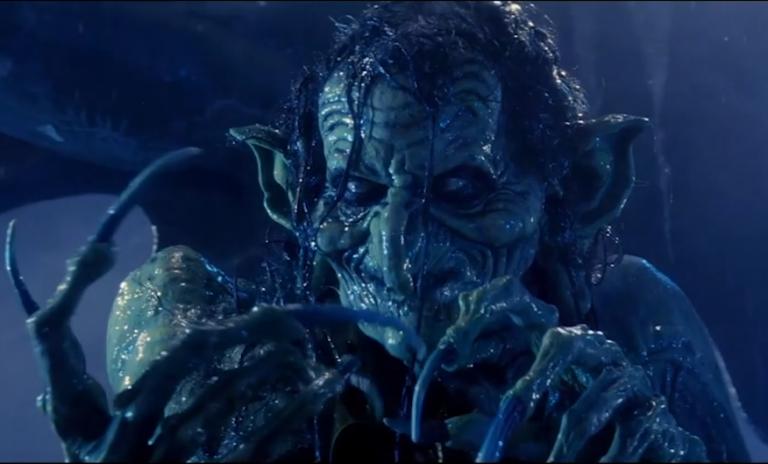
Herbert Marcuse was a German philosopher, sociologist, and social theorist who was associated with the Frankfurt School of critical theory. He was born in Berlin in 1898 and died in Starnberg, Germany, in 1979. Marcuse was one of the most influential thinkers of the 20th century, and his ideas continue to be widely debated and discussed in academic and intellectual circles, despite the fact that most people have probably never heard of him!
Early Life and Education
Herbert Marcuse was born into a Jewish family in Berlin in 1898. He was educated at the University of Berlin, where he studied philosophy with some of the leading philosophers of the time, including Martin Heidegger and Edmund Husserl. After completing his studies, Marcuse worked as a teacher and writer in Germany, but he was forced to flee the country in 1933 after the Nazis came to power.
Career and Contributions
After leaving Germany, Marcuse emigrated to the United States, where he began a long and distinguished career as a scholar and writer. He taught at several universities, including Columbia University, Harvard University, and the University of California, San Diego.
Marcuse is best known for his work in critical theory, a tradition of thought that emerged in the 1930s and was associated with the Institute for Social Research in Frankfurt, Germany. Critical theory was focused on analysing and challenging the social, cultural, and economic structures of modern society, and it sought to develop new ways of thinking about freedom, justice, and democracy. Marcuse’s work was particularly influenced by the ideas of the early Marxist thinker, Karl Marx. Like Marx, Marcuse believed that the capitalist system was inherently exploitative and that workers were alienated from the products of their labor. He also shared Marx’s belief in the importance of collective action and the struggle for social and economic justice.
However, while Marcuse was a Marxist, his work was also critical of traditional Marxist theory, particularly its emphasis on economic determinism and the role of the working class in achieving social change. Marcuse believed that new forms of oppression had emerged in modern society, and that traditional Marxist theory was insufficient to address these new forms of oppression. Marcuse was a key figure in the development of critical theory, and his work was characterized by a deep commitment to social and political change. He argued that traditional liberal democracy and capitalist society had become increasingly oppressive and repressive, and that radical social and cultural transformation was necessary to achieve true freedom and equality.
Repressive Tolerance
In his essay “Repressive Tolerance,” Herbert Marcuse argues that the concept of tolerance as it is commonly understood is inadequate for creating a truly free and equal society. Marcuse contends that “repressive tolerance,” or the tolerance of oppressive and reactionary ideas and movements, actually serves to perpetuate the status quo and maintain the existing power structures.
Liberating Tolerance
Instead, Marcuse advocates for a form of “liberating tolerance,” which involves actively resisting and challenging oppressive and reactionary movements from the Right, while supporting and promoting progressive movements from the Left. He suggests that this requires not only tolerating discussion and debate, but also taking action to support and promote progressive causes.
This practice, that is very much prevalent today, begins with the thought, writings and works of Herbert Marcuse and other Frankfurt School thinkers which nicely explains why institutions captured by the left such as schools, demonstrate an intolerance of traditionalist values that may be in opposition to the ideals of ‘social justice,’ or so called ‘woke values,’ dismissing them as hate speech or bigotry whilst engaging in cancel culture that sees speakers ‘de-platformed,’ and so on. This is, believe it or not ‘Liberating Tolerance,’ in action that nicely explains why the modern political left is keen to support current hot button topics such as ‘drag queen story hour,’ or the right of men to use female only spaces whenever they decide to identify as a woman and so on.
Marcuse argues that traditional liberal democracy and capitalist society have become increasingly oppressive and repressive, and that radical social and cultural transformation is necessary to achieve true freedom and equality. He emphasizes the importance of challenging dominant cultural and political norms, and he advocates for the use of language and cultural practices to subvert and undermine oppressive power structures. Overall, Marcuse’s essay “Repressive Tolerance” is a critique of traditional understandings of tolerance and a call for a more radical and transformative approach to social and political change.
One Dimensional Man
One of Marcuse’s most influential works was his 1964 book, One-Dimensional Man. In this book, Marcuse argued that modern society had become “one-dimensional,” in the sense that all forms of dissent and opposition had been absorbed and integrated into the dominant culture and ideology. He suggested that this one-dimensionality had led to a “false consciousness” among the masses, who had been conditioned to accept the existing social and political order as natural and inevitable.
Marcuse also emphasized the importance of challenging dominant cultural and political norms, and he advocated for the use of language and cultural practices to subvert and undermine oppressive power structures. He was a strong critic of what he called “repressive tolerance,” the idea that all forms of speech and expression should be allowed in a democratic society. Marcuse argued that this approach to tolerance simply perpetuated the existing power structures and did nothing to challenge the dominant culture.
Legacy and Impact
Herbert Marcuse’s ideas have had a profound impact on a wide range of intellectual and social movements, including feminism, environmentalism, and anti-globalization. His work has been influential in fields as diverse as philosophy, sociology, political science, and cultural studies. Marcuse’s ideas have also been the subject of much debate and criticism. Some scholars have accused him of being overly pessimistic about the possibilities for social and political change, while others have criticized his approach to tolerance as being authoritarian and repressive. Despite these criticisms, Herbert Marcuse remains one of the most important and influential thinkers of the 20th century. His work has challenged and inspired generations of scholars and activists, and his ideas continue to be relevant and thought-provoking today.
“Liberating tolerance, then, would mean intolerance against movements from the Right and toleration of movements from the Left. As to the scope of this tolerance and intolerance: … it would extend to the stage of action as well as of discussion and propaganda, of deed as well as of word.”
In this quote, Marcuse is arguing that true tolerance requires an active effort to challenge and resist oppressive and reactionary movements from the Right, while also allowing and even encouraging progressive movements from the Left. He suggests that this requires not only tolerating discussion and debate, but also taking action to support and promote progressive causes. This idea is in line with Marcuse’s broader critique of “repressive tolerance” and his call for a more radical and transformative approach to social and political change.
Authors Note:
It should be noted that the authors of the many varied articles, essays, blog posts and books available on this website are not hostile to the politics of the left, we’re free thinkers first and foremost and support any rationally argued point of view that we find to have merit, but Marcuse’s ‘Liberating Tolerance,’ is not a dialectic process designed to find truth and neither is it good use of the rational faculty common to all human beings. It’s the repression of debate, dialectics and honest inquiry deliberately engineered to make the state and the society it supports unstable, chaotic and ripe for revolution, which is why we do not support it.

